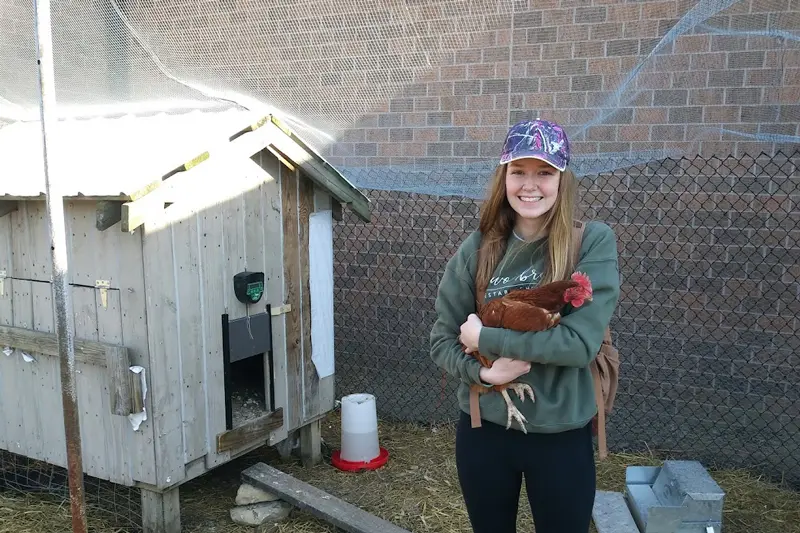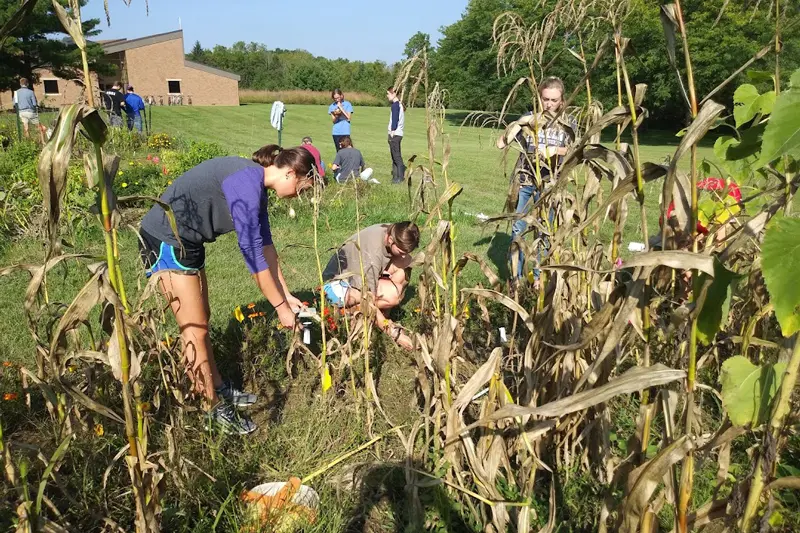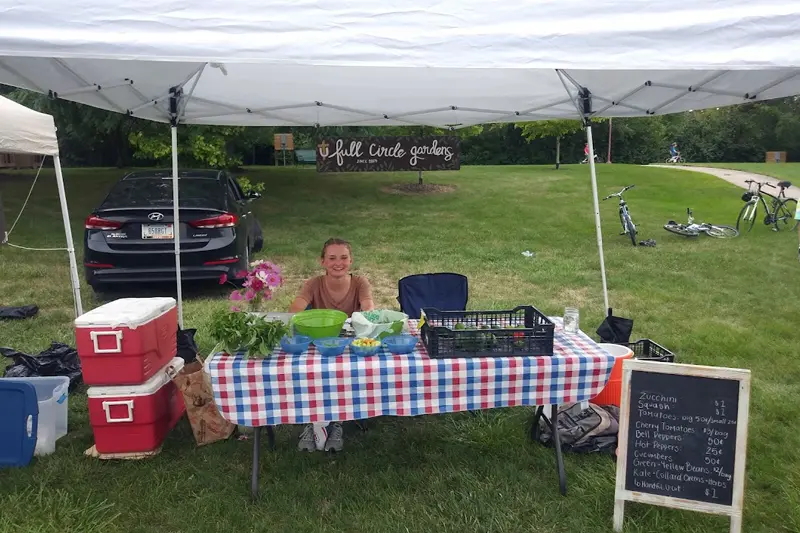Taylor University is committed to caring for God’s creation through sustainable practices. In the Environmental Science, Public Health, and Sustainable Development Program, faculty strive to integrate faith and learning into practical sustainable solutions—solutions that are implemented by students.
Dr. Phil Grabowski, assistant professor of Sustainable Development, has directed the volunteer-based garden at Randall Environmental Center for the last four summers. This past summer, he was aided in his research efforts by Environmental Science major Juniper Tucker ‘23 and Biology Science Education major Kate Langerak ‘22.
What Does it Mean to Garden Sustainably?
If you look down at your plate during a meal, chances are that you would have a hard time naming where each individual product came from. According to Grabowski, there is a modern disconnect between the shopper and where their food comes from and how it’s grown. However, at Taylor, the Sustainable Development program uses the garden to help bridge this gap.
Modern agricultural practices focus on concepts like tillage, fertilizer, monocropping, and pesticides. However, the chief goal of Tucker and Langerak’s hands-on research conducted in the garden focuses on comparing the use of organic gardening practices as opposed to conventional industrialized growing practices.
Sustainable Agriculture and Food Systems Class
This garden is part of a larger project started in the fall of 2020 through Grabowski’s Sustainable Agriculture and Food Systems class. The students were given the task of engineering different sustainable projects that would contribute to the overall betterment of the garden. The class designed a chicken coop housing five chickens, an aquaponics system, and a worm compost table in the greenhouse. Each project continues to be implemented by current students.

The chicken and fish manure were strategically collected and added to compost in the garden, along with the vermicompost (compost using worms). These projects all work together to improve soil composition organically.
Teaching Sustainable Practices
Organic gardening involves alternative methods for weed control, pest control, and soil health. Students also take into account the weight and measurements of produce to determine health of the plants. Over the summer, the garden’s produce was sold at Randall, local farmer’s markets, and Taylor’s own Dining Commons.
Improving soil’s structure is also a pivotal step. In order to produce quality food, the garden team examined the most effective soil amendments. Grabowski said that the natural soil of this part of Indiana consists of heavy clay, which can hold too much water and become compacted. In order to improve the soil, students used the composted manure, agricultural lime, and peat moss.
Environmentally-friendly pest control options had to be considered. The team installed fencing around the garden to keep wildlife out of their produce. To deter other unwanted pests, they used a non-toxic spray made from dish soap, neem oil, liquid kelp, and liquid fish.

Solving Bigger Picture Problems
Looking at the bigger picture of sustainability, Grabowski recognizes that it is about getting to the root of harmful habitual practices. Other sciences use experimentation, which is a linear process that tests hypotheses; however, in environmental science, students are exploring “wicked problems,” which are problems that are socially complex and have no easy solution. Experimentation to find solutions may solve one problem, but cause another. For example, organically-grown produce may be environmentally-friendly, but the cost of food could increase, creating an economic burden.
Solving our sustainable food production problems has broad social, economic, and geo-political implications. These “wicked problems” require engaged science that considers multiple causes and conflicting perspectives. As students seek solutions to complex issues, they engage critical thinking skills, opening up their perspectives in unexpected ways.
Want to learn more about what the Sustainable Development program has to offer? Check it out here!



